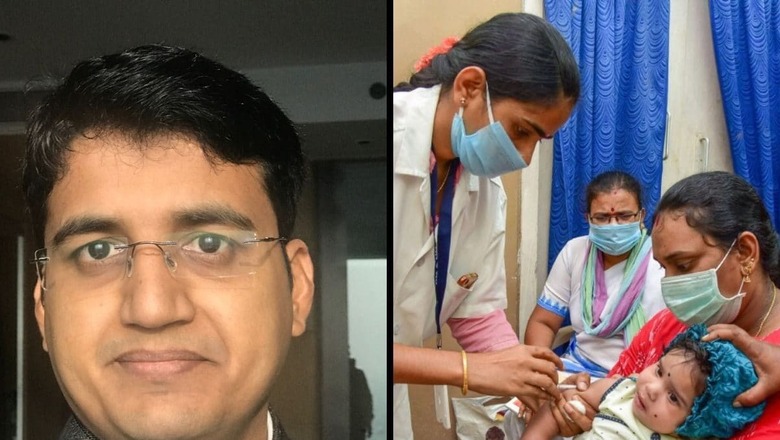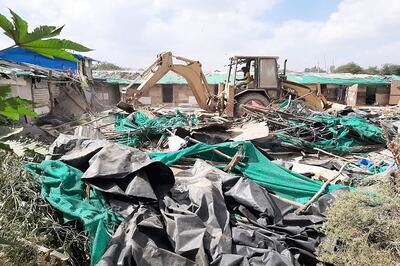
views
Aiming to cater to 2.6 crore newborns and 2.9 crore pregnant women every year, the Modi government’s U-WIN could be the answer to India’s problem of keeping track of the next vaccination dose, Dr Mangesh Gadhari, health officer at UNICEF India, told News18.
The ministry of health and family welfare has launched U-WIN to digitise India’s universal vaccination programme based on the success of the CoWIN platform – replicating the same concept. The pilot has been launched across India and manual entry of data from the registers to software has already begun.
During a media field visit at PHC Pilliem Dharbandora, Goa, Gadhari, in a response on U-WIN routine immunisation portal launched in February by the government of Goa as pilot, said it was “an excellent way of leveraging technology to track missed children”. “For decades, healthcare authorities and service providers have been facing the challenge of keeping track of the next dose of routine immunisation to children and also facing challenges with caregivers not bringing the maternal child protection (MCP) card during immunisation,” Gadhari said in an exclusive interaction.
“U-WIN platform will address all these challenges similar to what CoWIN did for us. From booking slots, sending reminders before and on the due date to maintaining records and certificates, it made the entire process easy, trackable and smooth.”
Another challenge for the immunisation programme, he said, was with the intrastate or interstate or intradistrict or interdistrict migration of families.
“With the rollout of U-WIN for pregnant women and children, vaccine acknowledgement and immunisation cards linked to ABHA ID (Ayushman Bharat Heath Account) will be generated and all states and districts can access a common database to track and vaccinate programme participants (in this case pregnant women and children).”
Gadhari doesn’t foresee any major hiccups in the rollout of the project as he believes there are a lot of learnings from the Covid-19 vaccination program in using Co-WIN.
“All these learnings will help in sharpening the U-WIN platform and its smooth rollout.”
INDIA’S CONCERN OVER ‘MISSED CHILDREN’
“Missed children are India’s big target for improving immunisation coverage since the launch of Mission Indradhanush in 2014-15,” he said.
Missed children, also known as zero dose children, are those who fail to get even a single dose of vaccine. In India, there are approximately three lakh zero dose children.
He explained that until now about six phases of Mission Indradhanush (MI) and Intensified Mission Indradhanush are completed in pockets or districts with low immunisation coverage. The first two phases resulted in an increase in full immunisation coverage by 6.5% and after six phases, there has been an improvement of more than 18% in full immunisation coverage as per National Family Health Survey 5 (NFHS 5) over NFHS4.
Other possible ways to reduce the gap of zero dose or missed children is by strengthening the micro-plans for routine immunisation at the village level, taking primary health care as close as possible to communities and enhancing community participation.
“Better use of non-health community platforms such as self-help groups and continuous strengthening of health wellness centres will also help, apart from building the capacities of frontline health workers and health functionaries for interpersonal communication.”
He emphasised that the UNICEF will continue to support the government of India’s immunisation programmes, in reaching missed/drop-out children toward achieving universal health coverage and accelerating sustainable development goals focused on health.
INDIA’S NEXT BIG AIM: DIGITAL HEALTH
“India is focussing big time on digital health, particularly after the pandemic has set in. I believe this is a very welcome change.”
Gadhari recalled that in order to achieve the targets of Universal Health Coverage (UHC) and health-related Sustainable Development Goal by 2030 quality healthcare services should be made available to all by removing all kinds of barriers.
“In the next few years, Ayushman Bharat Digital Health Mission (ABDM) will definitely help improve the efficiency, effectiveness, and transparency of overall health service delivery.”
“With the choice of an individual to accept both public and private services in compliance with guidelines and protocols, policymakers and program managers will have better access to data and analytics enabling real-time monitoring and decision-making. It will help create a comprehensive feedback loop.”
HOW TO PREPARE FOR NEXT PANDEMIC?
According to Gadhari, the Covid-19 pandemic has unleashed economic and social vulnerabilities with distressing impacts on women and children across the world, particularly from the marginalised and urban poor sections of society.
On the occasion of the G20 Health Presidency of India, Goa is ready to showcase the use of digital health innovations in achieving comprehensive Primary Health Care. “The state of art primary health centers (such as the PHC Dhanbodara, PHC Corlim) are the result of the highest political commitment… I think this is what every state needs to focus on — making health infrastructure more disaster, emergency resilient environment-friendly and sustainable to deliver comprehensive primary health care in continuity.”
Read all the Latest India News here



















Comments
0 comment